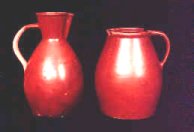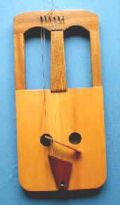
FAQ about Welsh
Or “Q and A” as we used to call it. Some basic information for those new to the subject, with links to places you can find out more. See also Gwybodiadur’s page on MYTHS ABOUT WELSH.- Is Welsh a dialect of English?
- How many people speak Welsh nowadays?
- Where is Welsh spoken?
- Is it really true that Welsh is spoken in South America?
- Which English words come from Welsh?
- Which Welsh words come from English?
- What’s Welsh literature like?
- What’s Welsh traditional music like?
- What’s Welsh traditional dress (national costume) like?
- I understand the Welsh have wonderful castles?
- Why would anyone want to learn Welsh?
Is Welsh a dialect of English?
No. It’s a completely distinct language, no closer to English than Italian or Greek. Welsh is part of the Celtic family of languages, related to Breton (the Celtic language of north-west France) and Cornish (now extinct), and more distantly to Irish, Scottish Gaelic and Manx (which died out during the 20th century). There are two branches of Celtic, a southern one, sometimes called Brythonic or Brittonic or P-Celtic, and a northern one, called Goidelic or Gaelic or Q-Celtic. Welsh, Breton and Cornish are in the first group, and it is completely wrong to refer to these languages as ‘Gaelic’. Although they are related to Irish (a.k.a. Gaelic or Erse), Scottish Gaelic and Manx, they are not close enough to these languages to be mutually intelligible. In other words, there is not much in those languages that a speaker of Welsh, Breton or Cornish could understand without prior knowledge. And although Welsh speakers and Bretons can certainly recognise plenty of words in each other’s languages, they cannot actually converse with each other in them as is sometimes claimed. A brief history of the Celtic languages can be found at the university of Berkeley, California: http://ls.berkeley.edu/dept/celtic/celtic_lang_study.html.How many people speak Welsh nowadays?
The standard figure quoted is about half a million. That’s based on a question in the 10-yearly census which includes a question on whether you can speak Welsh. 508,098 people answered yes in 1991; the 2001 figures, only now coming through, seem to show a slight increase, with 797,717 people (28.4% of a population of 2,903,085) claiming to have one or more of the four skills in Welsh (reading, writing, speaking, understanding). The question is put in Wales only, by the way, although there are thought to be thousands of Welsh-speakers elsewhere. So, what the answers to that question really tells us is how many people consider themselves to be Welsh-speakers, rather than how many really can, or do, speak Welsh. In other words, the question involves people’s attitudes to Welsh, their confidence and their pride in the language, as well as their actual ability to speak it. Another problem is that different surveys always seem to ask a slightly different question each time.How do the figures break down? According to a survey published by the Welsh Office (Arolwg Cymdeithasol Cymru 1992: adroddiad ar y Gymraeg), 21.5% of the population of Wales (590,800 people) spoke Welsh at that time; this divides into 32.4% of 3–15 year olds, 17.8% of 16–29s, 16.7% of 30–44s, 18.7% of 45–64s and 24.2% of over 65s. 326,600 (12% of the population) were first-language speakers, defined as someone who was brought up speaking more Welsh than English at home. 13.4% of the population of Wales claimed to be fluent, while 66.1% said they have no knowledge of Welsh at all. (Source: Geraint Jones, History and Status of the Welsh Language http://users.comlab.ox.ac.uk/geraint.jones/about.welsh/.) It’s sometimes said that the number of people who have some knowledge of Welsh could be around a million – but who can say for sure?
While how many speakers a language has might seem like a straightforward question, it’s actually far from simple. Nowadays just about everyone in Wales has had some exposure to Welsh, at school or elsewhere, even just from reading bilingual road signs. At what point does a Welsh learner become a Welsh speaker? Conversely, what if you were brought up speaking Welsh but haven’t spoken it since you were a child? Yes, the number of people who can speak some Welsh appears to be turning the corner, but it seems likely that the number of naturally Welsh-speaking households is still declining. What does it mean to be a native speaker? If Wales ends up full of people who can speak Welsh but don’t, or people who only speak Welsh as a foreign language, how many Welsh speakers are there really? You might as well ask how many people in Wales speak French or German.
This extract from an essay in the Welsh language magazine Barn examines the fate of the language in different places along an imaginary journey through Wales, and makes the point that the Census results are only a very rough guide to the true situation of the language. ![]()
For detailed information on the fortunes of the language see Aitchison and Carter’s Geography of the Welsh Language. The BBC’s Story Of Welsh website has some maps and statistics at http://www.bbc.co.uk/wales/storyofwelsh/maps/mapsandstats1.shtml.
Where is Welsh spoken?
 Mainly in North and West Wales (for details see the sources quoted just above). Mid-Wales is also part of the Welsh-speaking zone, known as y Fro
Gymraeg, but so depopulated that it’s very vulnerable: it might not take much English-speaking immigration for the zone to split into two. There are a few historically Welsh-speaking areas just over the border into England. Whether anyone still speaks Welsh there nowadays I couldn’t say, but they did until recently. It’s been claimed that as many as 20,000 people in London can speak Welsh. Then there’s Patagonia (see below). And of course there are Welsh speakers, whether ex-pats or learners, scattered all over the globe.
See Pamela Petro’s book about the ex-pat Welsh communities of the world, Travels in an Old Tongue.
Mainly in North and West Wales (for details see the sources quoted just above). Mid-Wales is also part of the Welsh-speaking zone, known as y Fro
Gymraeg, but so depopulated that it’s very vulnerable: it might not take much English-speaking immigration for the zone to split into two. There are a few historically Welsh-speaking areas just over the border into England. Whether anyone still speaks Welsh there nowadays I couldn’t say, but they did until recently. It’s been claimed that as many as 20,000 people in London can speak Welsh. Then there’s Patagonia (see below). And of course there are Welsh speakers, whether ex-pats or learners, scattered all over the globe.
See Pamela Petro’s book about the ex-pat Welsh communities of the world, Travels in an Old Tongue.
Is it really true that Welsh is spoken in South America?
Unlikely as it may seem, yes. In 1865 a shipload of Welsh pioneers sailed to Argentina to start up a Welsh-speaking colony. A few of their descendants still speak Welsh, and there is considerable interest among the young in reviving the language of their ancestors. For information on Welsh Patagonia (Y Wladfa as it’s known in Welsh), visit the following websites:-
http://www.bbc.co.uk/wales/about/cag-patagonia.shtml
BBC Wales About Wales pages -
http://www.bbc.co.uk/cymru/tramor/patagonia.shtml
BBC Cymru news (in Welsh) -
http://www.btinternet.com/~Rhoshelyg/CCA/index.html
Cymdeithas Cymru–Ariannin, the Wales–Argentina Society -
http://www.acen.co.uk/patagonia/
Acen’s page on Patagonia -
http://www.s4c.co.uk/cofpatagonia/e_index.shtml

Cof Patagonia (‘Memories of Patagonia’) is a series that looks back at the history of the Welsh colony in Patagonia through a series of interviews and photos.
Which English words come from Welsh?
 Surprisingly few, you might think, given that English and Welsh have lived alongside each other for centuries. Many of the words and turns of phrase used in “Wenglish”, the Welsh dialect of English spoken in Anglicised areas of Wales, come directly from Welsh but as for Welsh words that have entered the mainstream English language, they tend to be rather specialist terms relating to specifically Welsh concepts: eisteddfod, gorsedd, hiraeth (combination of homesickness and nostalgia), hwyl (religious or emotional fervour at public gatherings), crwth (ancient stringed instrument, see below) cwm (glaciated ‘hanging’ valley, known elsewhere as a corrie or cirque). Can we really call these part of English or are they just Welsh terms used frequently enough in English to become familiar to someone with a wide English vocabulary?
Then there’s the coracle (small round portable boat used for salmon-fishing), and the corgi (literally ‘dwarf dog’), originally bred for herding cattle, but again, even though these seem more like proper English words, they still have strong Welsh associations. Less easily identifiable as Welsh phenomena are flannel (from Welsh gwlân, ‘wool’), and puzzlingly, the word skipper, which to homeless people means the place they go to sleep rough, and apparently comes from Welsh ysgubor, ‘barn’.
Surprisingly few, you might think, given that English and Welsh have lived alongside each other for centuries. Many of the words and turns of phrase used in “Wenglish”, the Welsh dialect of English spoken in Anglicised areas of Wales, come directly from Welsh but as for Welsh words that have entered the mainstream English language, they tend to be rather specialist terms relating to specifically Welsh concepts: eisteddfod, gorsedd, hiraeth (combination of homesickness and nostalgia), hwyl (religious or emotional fervour at public gatherings), crwth (ancient stringed instrument, see below) cwm (glaciated ‘hanging’ valley, known elsewhere as a corrie or cirque). Can we really call these part of English or are they just Welsh terms used frequently enough in English to become familiar to someone with a wide English vocabulary?
Then there’s the coracle (small round portable boat used for salmon-fishing), and the corgi (literally ‘dwarf dog’), originally bred for herding cattle, but again, even though these seem more like proper English words, they still have strong Welsh associations. Less easily identifiable as Welsh phenomena are flannel (from Welsh gwlân, ‘wool’), and puzzlingly, the word skipper, which to homeless people means the place they go to sleep rough, and apparently comes from Welsh ysgubor, ‘barn’.
 But the most mysterious of all is penguin, which is often claimed to come from the Welsh pen gwyn, ‘white head’. The fact that penguins don’t actually have white heads is explained away by reference to the fact that the term originally applied not to the birds found at the South Pole, but members of the auk family which includes such creatures as guillemots and puffins and the flightless Great Auk, extinct since 1844. But of course, when you think about it, these birds don’t have white heads either.
But the most mysterious of all is penguin, which is often claimed to come from the Welsh pen gwyn, ‘white head’. The fact that penguins don’t actually have white heads is explained away by reference to the fact that the term originally applied not to the birds found at the South Pole, but members of the auk family which includes such creatures as guillemots and puffins and the flightless Great Auk, extinct since 1844. But of course, when you think about it, these birds don’t have white heads either.
Which Welsh words come from English?
As you might expect, the flow of borrowings from the large international power to its smaller neighbour has been far greater. There are many, many words of English origin in Welsh, and it’s a mistake to assume that they are all recent borrowings: Welsh has been borrowing words from English for centuries. The older ones often aren’t noticeable as such because they are so archaic in form as to be unrecognisable, and the Welsh grammatical feature of ‘mutation’ can disguise the English origins of a word; who would have thought that the Welsh expression o gwmpas (‘around’) came from the English compass, or clôs (‘breeches’) from clothes? An old borrowing from English can become fossilised in Welsh after it has dropped out of English use: the inhabitants of Caernarfon are traditionally known in Welsh as cofis, from the archaic English slang cove (‘chap, guy’) which with the dropping of the final v sound gives us Welsh singular co. Unlike (modern) English, Welsh re-spells the words it imports according to Welsh spelling conventions, hence snwcer (‘snooker’) and so on. The same happens when Welsh plurals and comparatives are applied to English borrowings: jwg – jygiau (‘jugs’), neis – neisiach (‘nicer’). When exactly something ceases to be just an English word people use while speaking Welsh and actually enters the language is a moot point, but such English words tend not to be shown in dictionaries even when they have acquired a Welsh spelling: neis, grêt, lyfli and so on – if you don’t know what these words mean just say them aloud! For more on the huge influence of English on colloquial Welsh, see Ceri Jones’ book Dweud Eich Dweud.
An old borrowing from English can become fossilised in Welsh after it has dropped out of English use: the inhabitants of Caernarfon are traditionally known in Welsh as cofis, from the archaic English slang cove (‘chap, guy’) which with the dropping of the final v sound gives us Welsh singular co. Unlike (modern) English, Welsh re-spells the words it imports according to Welsh spelling conventions, hence snwcer (‘snooker’) and so on. The same happens when Welsh plurals and comparatives are applied to English borrowings: jwg – jygiau (‘jugs’), neis – neisiach (‘nicer’). When exactly something ceases to be just an English word people use while speaking Welsh and actually enters the language is a moot point, but such English words tend not to be shown in dictionaries even when they have acquired a Welsh spelling: neis, grêt, lyfli and so on – if you don’t know what these words mean just say them aloud! For more on the huge influence of English on colloquial Welsh, see Ceri Jones’ book Dweud Eich Dweud.
What’s Welsh literature like?
 This is of course a huge subject which Gwybodiadur does not plan to tackle seriously, but here are a few hints. Welsh is said to have one of the very oldest literatures in Europe. The stories of the Mabinogion are well known to lovers of Celtic culture and widely available in English translation. The Welsh poetic tradition is particularly rich. There are many intricate verse-forms, which like depend as much on alliteration (patterns of repeated consonants), assonance (ditto for vowels) and syllable-count as on rhyme and rhythm.
The basis of most traditional Welsh verse is cynghanedd, a complex set of rules used to construct everything from short comic verses to serious poetic marathons of the sort that win the Chair at the Eisteddfod. Writing verses in traditional metres has become an almost trendy activity in recent years, and the award of the Chair, the prestigious prize for a long poem in strict metre, to a female bard (37-year-old Mererid Hopwood) at the 2001 National Eisteddfod in Denbigh was a fitting symbol of the fact that cynghanedd is no longer an old man’s game. (She went on to win the Crown at Maldwyn in 2003). Nor is it an elitist academic pursuit; the winning poet is as likely to be a working sheep-farmer as a university professor.
This is of course a huge subject which Gwybodiadur does not plan to tackle seriously, but here are a few hints. Welsh is said to have one of the very oldest literatures in Europe. The stories of the Mabinogion are well known to lovers of Celtic culture and widely available in English translation. The Welsh poetic tradition is particularly rich. There are many intricate verse-forms, which like depend as much on alliteration (patterns of repeated consonants), assonance (ditto for vowels) and syllable-count as on rhyme and rhythm.
The basis of most traditional Welsh verse is cynghanedd, a complex set of rules used to construct everything from short comic verses to serious poetic marathons of the sort that win the Chair at the Eisteddfod. Writing verses in traditional metres has become an almost trendy activity in recent years, and the award of the Chair, the prestigious prize for a long poem in strict metre, to a female bard (37-year-old Mererid Hopwood) at the 2001 National Eisteddfod in Denbigh was a fitting symbol of the fact that cynghanedd is no longer an old man’s game. (She went on to win the Crown at Maldwyn in 2003). Nor is it an elitist academic pursuit; the winning poet is as likely to be a working sheep-farmer as a university professor.
-
http://home.freeuk.com/pjanderson/storiesfromwales/
Stories From Wales -
http://www.cyberphile.co.uk/~taff/taffnet/mabinogion/mabinogion.htm
The Mabinogi or Mabinogion -
http://www.cybercom.net/~klb/part1.html
Gwenllian’s Poetry Primer (introduction to Welsh verse forms) -
http://www.cynghanedd.com
‘The home of cynghanedd on the Web’ (in Welsh) -
http://users.comlab.ox.ac.uk/geraint.jones/gwasg.aredig/cynghanedd/cynnwys.html
Dafydd ap Myrddin’s manual Clywed Cynghanedd in web-page form (in Welsh); for printed book see below.
What’s Welsh traditional music like?
Wales, the Land of Song, has produced many world-famous performers, from Bryn Terfel to Cerys Matthews, from Tom Jones and Shirley Bassey to Aled Jones and Charlotte Church. But if you look under ‘Welsh’ in non-specialist record shops you will be struggling to find anything more than male voice choirs; the native musical traditions of Wales are a well-kept secret.Wales is home to many of the world’s finest hymns, as performed by many a côr meibion (male voice choir), and in many a cymanfa ganu (mass hymn-singing event). If you had an Anglican upbringing you will probably be familiar with one or two, such as Cwm Rhondda (“Guide me O Thou Great Redeemer” a.k.a. “Bread of Heaven”) and Aberystwyth (“Jesu, Lover of My Soul”), but there are many more where that came from, largely unknown outside Wales. Alan Luff’s excellent book Welsh Hymns and Their Tunes sets hymns within the wider context of Welsh folk music and culture, and the words of more than 100 Welsh songs and hymns can be found in Canwn!, a handy little book published by Y Lolfa (see below for details).
Wales has a fine stock of folk-tunes – solo songs, vocal harmonies, and melodies for harp and fiddle spring to mind – but they rarely receive the exposure they deserve. When people refer to Celtic music, they usually mean Ireland or Scotland, where folk-music is popular and even cool. But the Welsh have much less interest in their traditional music, and Wales is better known for trendy indie bands such as Manic Street Preachers, Catatonia, Super Furry Animals, Gorki’s Zygotic Mynci and the Stereophonics. We must also admit to a regrettable weakness for schmaltzy easy listening, and lame Welsh translations of Anglo-American chart-toppers. You could be forgiven for thinking there was no traditional Welsh music.

But things are looking up; as well as the few stalwart names that have been around for decades (Dafydd Iwan, Ar Log, Plethyn, Mabsant), new talents have emerged (Calennig, Aberjaber, Pigyn Clust, Carreg Lafar, Fernhill). Wales has unique traditional instruments such as the triple harp, which has not one but three rows of strings, and the almost forgotten crwth (a favourite with Scrabble players, also known as the crowde or crouther), which is a bowed lute, superseded some two or three centuries ago by the violin. In common with most (all?) of Europe, Wales once had bagpipes, which have disappeared almost without trace, though they are now being reinvented by enthusiasts such as Ceri Rhys Matthews and Jonathan Shorland. Other exponents of traditional Welsh instruments include Robin Huw Bowen and Llio Rhydderch (triple harp) and the wonderful Cass Meurig (crwth).
 MIDI files of Welsh folk tunes, sequenced by Barry Taylor, along with some lyrics, can be found at:
MIDI files of Welsh folk tunes, sequenced by Barry Taylor, along with some lyrics, can be found at:
- http://www.acronet.net/~robokopp/welsh.html
- http://www.newi.ac.uk/buckleyc/welshmidi/welshmusic.htm
- http://www.contemplator.com/wales/
- http://www.welshtraditionalmusic.com/

There is an excellent page on the Welsh national Anthem, Hen Wlad Fy Nhadau (‘Land of My Fathers’) complete with MP3 file of a suitably grand arrangement for choir and orchestra, at http://llamasoft.co.uk/wales.html. Words to all three verses with (non-literal) English translation, plus a recording of the chorus sung by a choir of what sounds like thousands, can be found on the website of the Welsh National Gymanfa [sic] Ganu Association: http://www.wngga.org/HenWlad.html. The anthem is also celebrated in the context of Welsh rugby songs at http://www.bbc.co.uk/wales/scrumv/hook/welsh-rugby-songs.shtml.
What’s Welsh traditional dress (national costume) like?
 Anyone who has been to Wales will be familiar with images of women and girls in tall black hats, big red shawls and voluminous checked or striped skirts – the traditional ‘Welsh lady’ of a thousand postcards and china dolls. There’s nothing much for men, apart from a general sort of European peasant get-up involving breeches, waistcoat and buckled shoes – not very exciting really, and nothing to sell to tourists – hence the recent attempt to invent ‘Welsh’ kilts and tartans. It’s dreary I know, but there isn’t really much in the way of traditional dress in Wales, and what there is is long extinct: whereas in some countries national costume makes an appearance at festivals, weddings and so on, Welsh costume is strictly for those postcards and china dolls. Folk-dance groups like to wear something a bit olde-worlde, but the full Welsh Lady outfit is not exactly suitable for jumping about in.
Anyone who has been to Wales will be familiar with images of women and girls in tall black hats, big red shawls and voluminous checked or striped skirts – the traditional ‘Welsh lady’ of a thousand postcards and china dolls. There’s nothing much for men, apart from a general sort of European peasant get-up involving breeches, waistcoat and buckled shoes – not very exciting really, and nothing to sell to tourists – hence the recent attempt to invent ‘Welsh’ kilts and tartans. It’s dreary I know, but there isn’t really much in the way of traditional dress in Wales, and what there is is long extinct: whereas in some countries national costume makes an appearance at festivals, weddings and so on, Welsh costume is strictly for those postcards and china dolls. Folk-dance groups like to wear something a bit olde-worlde, but the full Welsh Lady outfit is not exactly suitable for jumping about in.
More on Welsh costume at:
- http://www.nmgw.ac.uk/mwl/faq/gwisg.en.shtml (Museum of Welsh Life).
- http://www.wales-calling.com/culture/costume.htm
I understand the Welsh have wonderful castles?
The castles of Wales are justly famous and seem to form the single most important plank in the strategy of those promoting Wales abroad. The art of castle-building – the fortified military sort, not just stately homes with decorative arrowslits – reached great heights here, and if castles are your thing, you should come to Wales. But bear in mind that for many people they are a slightly uneasy subject of national pride, since of course they were not built by the Welsh, but by the invading English, in order to keep the Welsh down. All this is beyond the scope of Gwybodiadur, but here are some good websites on the subject:Why would anyone want to learn Welsh?
Why not? It’s interesting, it can be useful as well as fun and it brings you closer to your roots. Some of the many possible reasons are outlined here.References
Ap Dafydd, Myrddin (1994) Clywed Cynhanedd: Cwrs Cerdd Dafod [‘Hearing cynghanedd: a course in cerdd dafod’]. Llanrwst: Gwasg Carreg Gwalch, ISBN 0-86381-275-9, approx. 130×190mm, £6.50 h/b, o/p? In Welsh.
Luff, Alan (1990) Welsh Hymns and Their Tunes. London: Stainer and Bell, ISBN 0-85249-799-7, £11.25; or Carol Stream, Illinois: Hope Publishing Company, ISBN 0-916642-42-9. Scholarly but readable.
Canwn! [‘Let’s sing!’] (1990). Talybont: Y Lolfa, ISBN 0-86243-217-0, approx. 95×120mm, £1.50 p/b. No author named.
Websites
- http://www.bbc.co.uk/wales/about/
BBC About Wales - http://www.bbc.co.uk/wales/storyofwelsh/
The Story of Welsh
(six-part TV documentary on the history of the Welsh language, from the Iron Age to the 2002 census) - http://www.croeso-cynnes-wales.co.uk/iaith/hanes.html
More on the history of the language - http://www.legislation.hmso.gov.uk/acts/acts1993/Ukpga_19930038_en_1.htm
The Welsh Language Act 1993 - http://www.statistics.gov.uk/census2001/profiles/rank/rank_welsh.asp
http://www.statistics.gov.uk/census2001/profiles/w.asp#welsh
Census Statistics
© 1999–2003 Harry Campbell
Last updated: April 2004